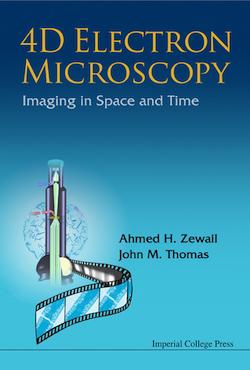
- Description
- About the Author
-
The modern electron microscope, as a result of recent revolutionary developments and many evolutionary ones, now yields a wealth of quantitative knowledge pertaining to structure, dynamics, and function barely matched by any other single scientific instrument. It is also poised to contribute much new spatially-resolved and time-resolved insights of central importance in the exploration of most aspects of condensed matter, ranging from the physical to the biological sciences. Whereas in all conventional EM methods, imaging, diffraction, and chemical analyses have been conducted in a static, time-integrated, manner, now it has become possible to unite the time domain with the spatial one, thereby creating four-dimensional (4D) electron microscopy.
This advance is based on the fundamental concept of timed, coherent single-electron packets, or electron pulses, which are liberated with femtosecond durations. Structural phase transitions, mechanical deformations, and the embryonic stages of melting and crystallisation are examples of phenomena that can now be imaged in unprecedented structural detail with high spatial resolution, and ten orders of magnitude as fast as hitherto. No monograph in existence attempts to cover the revolutionary dimensions that EM in its various modes of operation nowadays makes possible. The authors of this book chart these developments, and also compare the merits of coherent electron waves with those of synchrotron radiation. They judge it prudent to recall some important basic procedural and theoretical aspects of imaging and diffraction so that the reader may better comprehend the significance of the new vistas and applications now afoot.
This book is not a vade mecum—numerous other texts are available for the practitioner for that purpose—but it is an in-depth expose of the paradigm concepts and the developed techniques that can now be executed to gain new knowledge in the entire domain of biological and physical science, and in the four dimensions of space and time.
-
Ahmed Zewail is the Linus Pauling Chair professor of chemistry and physics, and director of the Center for Physical Biology at Caltech. He is the sole recipient of the 1999 Nobel Prize for the development of the field of Femtochemistry.
He has published some 600 articles and 14 books and is known for his effective public lectures and writings, not only on science but also in global affairs. In 2009, President Barack Obama appointed him to the Council of Advisors on Science and Technology, and in the same year, he was named the first U.S. Science Envoy to the Middle East.
Cover Type: Hardcover, Paperback
Page Count: 360
Year Published: 2009
Language: English
